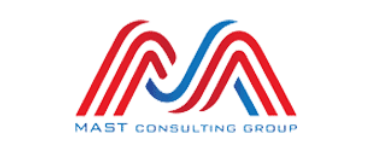The construction industry contributes 6% of the global GDP(1); and with accelerating urbanization, this share is set to rise further. For such a critical economic sector, the industry wasn’t at the forefront of digital transformation, until recent years. However, this has now changed dramatically; and accelerated digitalization and tech adoption define the post-pandemic construction sector.
IoT enabled networks of sensors, advanced BIM, AI, ML, drones, and AR & VR; are the new tools unlocking value across the construction value chain. A recent study(2) has found that such Proptech innovations could result in global savings of $0.7-1.2 trillion yearly in the early design phase, and $0.3-0.5 trillion in life-cycle operations; over the next ten years. But even these sizable monetary advantages pale, against the positive socio-economic impact of the sector’s enthusiastic adoption of emerging tech.

Opportunities and challenges
One concern about digitalization in construction is that it is inconsistent. While automation is reducing workforce risks and increasing productivity; supply chains and inventory continue to lag even among bigger players, despite the example of progressive companies who are using smart logistics, RFID labelling, and advanced ERP solutions. Addressing this imbalance could have great socio-economic implications – from more affordable housing, to a boost to economic growth and employment. Some of the more important enhancements that digitalization is unlocking in the construction industry include:
- Digitalization is making next-gen BIM possible: Building Information Modelling (BIM) is allowing stakeholders across the construction value chain to identify weaknesses, as well as opportunities for optimization. A significant enabler of data-driven operations and management, emerging BIM is transforming everything from early design stages, to the post construction building life-cycle.
- Implementing sustainable and cutting edge construction tech: The use of drones, 3D printing, and automation, are unlocking better productivity and time bound construction – in an industry notorious for delays in projects. Some of the most significant advances are being made early in the construction process, with site-mapping, design, and planning being streamlined by emerging technologies. This is not to say that other functions do not have tech-enabled advantages to leverage. 3D printing and pre-fab construction are ushering in an era of carbon-neutral construction – something that seemed virtually impossible, not long ago.
- Improving safety of onsite workers: Construction accidents are much more commonplace than in other industries, and this is true of the MENA region as well. The rise of wearable technologies has the potential to make a huge difference – through advanced alarm systems, communication headsets, proximity sensors, and heart rate monitors. Digitalization is also allowing safety protocols, to be standardized, implemented, and monitored, more effectively.

What MAST brings to construction
Data centers, analytics, and digital platforms are now a critical aspect of the construction sector. MAST Consulting’s Customer Intelligence and Analytics App (CIAA) uses data mining and collation, to unlock actionable insights for all stakeholders. Archiving the huge amount of historical data generated by construction – using license-based or open-protocol, and features like SNAPLOCK or WORM, and data compaction – is enhancing data accessibility, integrity, and security, with both cloud based and on-premises solutions. SD-WAN technology is transforming connectivity, enabling the effective optimization of remote sites from a centralized location. Blockchain-based authentication is set to introduce even greater decentralization, collaboration, and security, in the immediate future.
Empowered by digitalization, the MENA construction industry will have growth rate of 4.1%(4), by 2022. In essence, tech adoption in construction will emerge as one of the central drivers of economic diversification in the region, and redefine socio-economic outcomes, such as quality of life, affordable housing, employment, and investment returns.
Reference
1.Weforum
2. BCG
3. Global data
About MAST Consulting and MAST Consulting Group
A profitable home-grown UAE start-up, with a global footprint, MAST Consulting is a technology advisory and consulting firm headquartered in the UAE, with unique expertise in driving the end-to-end digital transformation of businesses, across sectors. With over 100 clients in the Middle East, the Indian subcontinent, and Africa, and over 80 years of cumulative global experience, MAST Consulting brings best practices from the consulting and the technology world under one umbrella. The company’s client portfolio includes an impressive list of market leaders, namely Panasonic, Hitachi, DIFC, Al Futtaim, Dubai Holding and Danube, among others.
Original Post : Construction will drive Socio-Economic positives through Digitalization (linkedin.com)



